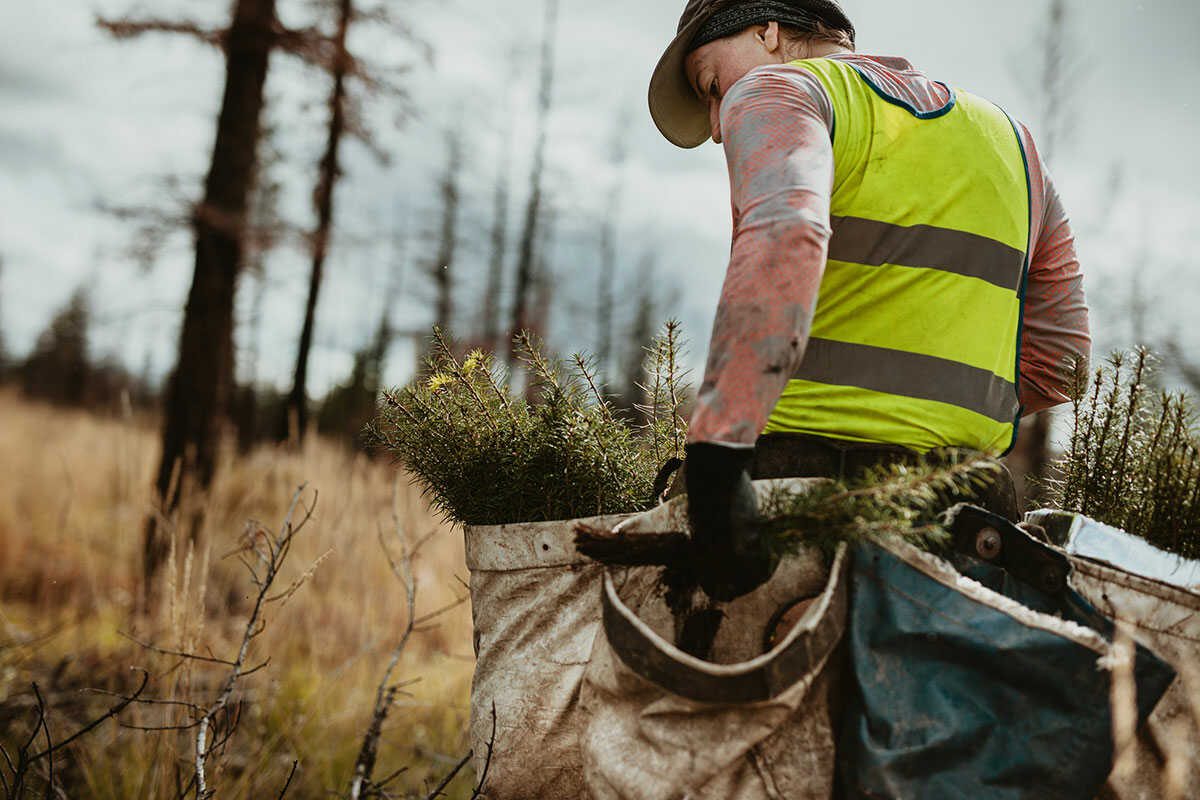Replanting trees doesn’t only help the planet, it helps forest supply companies remain viable now and in the future
Key Takeaways:
- Lumber is in very high demand right now, which makes reforestation essential.
- Replanting trees either naturally or with manmade practices has numerous benefits, including:
- Reducing the amount of carbon in the atmosphere
- Creating cleaner air
- Improving soil fertility
- Reducing the effects of soil erosion
- Restoring habitats for plants and animals
- Reforestation is also critical for businesses, as it can:
- Make companies more viable
- Create millions of jobs
- Help ensure long-term success
- Boost a company’s reputation
- To reforest, businesses should make efforts to:
- Plant trees
- Partner with their communities
- Safeguard existing forests
New homes, data centers, distribution facilities, building materials, and lumber are in very high demand right now. This is especially true because of the sustainable nature of wood; after all, trees can always grow back. But, while they can do this on their own, they also need some help, and this is where reforestation comes in.
Reforestation is very important for the environment, and it doesn’t stop there. It’s also critical for businesses, especially the forest supply industry. A sustainable future means healthy forests. Here’s why reforestation matters to the forest supply industry.
What is reforestation exactly?
While deforestation is the act of cutting down trees, reforestation is the opposite. It involves replenishing forests by either planting trees or doing things to help forests regenerate themselves. The benefits of reforestation are plentiful. They include:
- Carbon mitigation
Trees in forests play a huge role when it comes to carbon mitigation, as they absorb it from the atmosphere and store it in their trunks, leaves, roots, and branches. Every year, forests absorb about one-third of the carbon that gets produced from the burning of fossil fuels. This helps mitigate climate change and hotter temperatures.
- Fresher air
Another superpower of trees is that they help deal with air pollution. They absorb pollutants through their leaves and filter out contaminants like nitrogen dioxide and carbon monoxide.
- Improved soil fertility
Trees help keep soil cool thanks to the canopy their leaves provide. This allows it to retain moisture, which maintains its fertility. Tree roots can also increase soil moisture by bringing water to the surface from underground sources via their roots.
- Limits soil erosion
Soil erosion can cause sediment to contaminate rivers and reservoirs, but trees help prevent this. Roots help hold soil in place, which limits erosion. Their canopies also stop rain from falling on the ground directly, which reduces erosion.
- Promotes biodiversity
Reforestation is extremely beneficial to both plant and animal species, as it can help restore habitats. When forests regenerate, flora and fauna grow and thrive.
The business case for reforestation
What’s good for the planet is also good for business. This is why companies – especially those that utilize lumber in some form or another – should make reforestation a priority. This can lead to:
- More viable businesses
A company that’s main product is lumber clearly won’t be able to stay in business without a good lumber supply. Replanting trees as soon as they are cut down is the best way to ensure an ongoing supply. A report says that in 50 years, an acre of planted mixed conifer forest would yield about 7,000 board feet of lumber.
- A huge increase in jobs
In addition to the actual replanting work, when forests are sustainably managed, it can have a big impact on employment. According to a report, by 2030, as many as 16 million jobs worldwide could be created as a result of reforestation. And in the U.S., research has found that about 40 jobs get created per $1 million spent on reforestation.
- Massive growth potential
The total value of the world’s forests is estimated to be around $150 trillion, which is why conservation and reforestation efforts are vital. And because so many companies and consumers rely on lumber, there’s an enormous financial incentive to focus on sustainability.
- Long-term success
Companies shouldn’t just sit around and wait for climate change to ravage the plant – and their profits. Nor should they wait for new laws or regulations coming down from the government. Reforestation lets them be proactive and plan for the future.
- Bolsters company reputations
A large percentage of consumers these days make it a point to research businesses before buying from them. And what are they looking for? Their commitment to sustainability. When they make conservation a priority, this boosts their reputation in their industry dramatically.
How can businesses focus on reforestation?
There are a number of things companies can do to help with forestation. They include:
- Plant trees
While this one is pretty obvious, it’s not just a matter of putting seeds in the ground. The right trees have to be planted in the right places in the right way. This is the best approach for ensuring that new forests will be resilient.
- Work with their communities
Companies should seek partnerships with their local communities, as well as other businesses and agencies, for reforestation projects. As many people as possible should be involved because reforestation has such a far-reaching effect.
Safeguarding existing forests
Businesses should do what they can to offer protection to existing forests to prevent unnecessary or harmful deforestation. One way they can do this is by investing in environmental organizations committed to conservation.
Because we understand how valuable our forests are and how important protecting them is, reforestation and conversation are cornerstones of Gulf South Forest Products. This is one reason why we have been the leading supplier of lumber to companies around the world for more than 30 years. Learn more about us and our mission.





